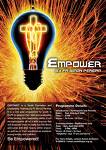 UNDERSTANDING DIVORCE & REMARRIAGE
UNDERSTANDING DIVORCE & REMARRIAGEDivorce and Remarriage in the Bible: The Social and Literary Context by David Instone-Brewer, 2002 Wm B. Eerdmans Publishing Co.
David Instone-Browne has probably written the first book which seriously takes into account the socio historical context of the Biblical texts on divorce & remarriage. The subtitle, "The Social and Literary Context" says it all and may sound a little academic to some. This does not mean however that the material is geared only for academics. On the contrary I found portions of the book helpful to Pastors and lay leaders; the last chapter deals with the pastoral dimensions of ministering to divorcees in the process of remarriage.
This comprehensive work traces the evolution of divorce and remarriage during the Biblical and post Biblical period. I found the chapters on Intertestamental Period, Rabbinic Teaching, Marriage Vows especially enlightening. The material in these chapters is not the sort Christian authors would normally tap into when putting forward their views on divorce and remarriage.
Most of us are trained to arrive at conclusions through a straight reading of the various Biblical texts and passages which mention divorce and remarriage. Instone-Brewer's contribution is to not only help us read the texts within their socio-historical context but to also nudge us to a place where the historical context influences our interpretation of divorce & remarriage. Did Jesus ignore 1st century Judaism realities and do away with divorce and remarriage? Or was his teaching an attempt to bring discipline into a liberal religious system vulnerable to easy divorce? Instone Brewer's responses are no to the first question and yes to the second.
The book is structured to make it easy for the reader to get into the author's perspective from the get go. And that's a help for busy pastors. Instone-Brewer states the conclusions of his work in the introduction. Here are his conclusions:
Although the book can be a bit heavy going at times - Pastors, theological students and lay leaders will not find it difficult to tackle issues the book raises. If you're a busy Pastor or a lay leader, read chapter 11 first (Pastoral Conclusions - Reversing Institutionalised Misunderstandings). The ultra- conservative will not agree with some of the analyses nor the conclusions; the centrist will find lots of material to boost their position and liberals will find stuff here that makes them wince.
David Instone-Brewer breaks new ground in this book. Its worth the money and time.










